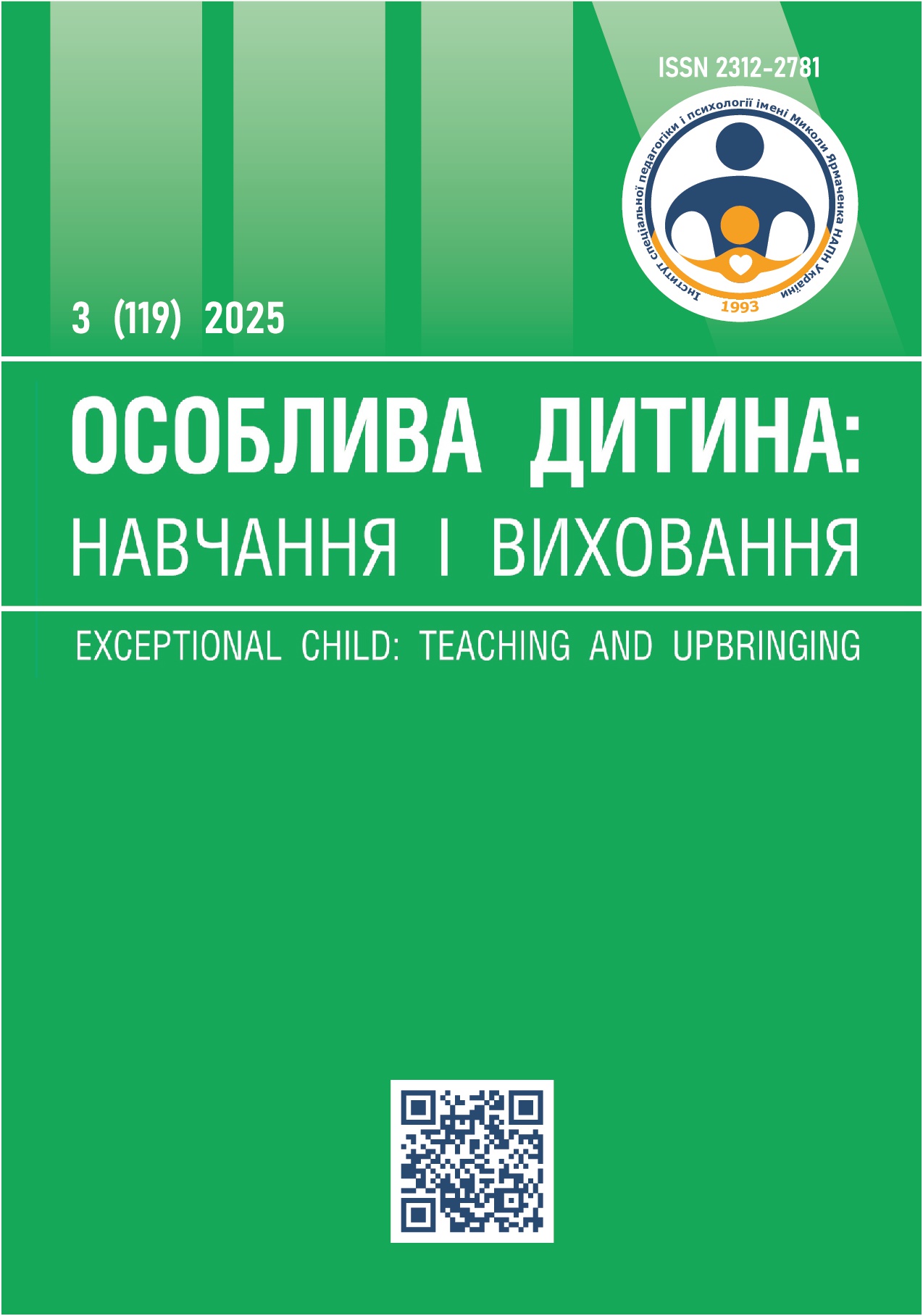PROFILACTICS OF PSYCHOEMOTIONAL DISORDERS IN CHILDREN WITH SPECIAL EDUCATIONAL NEEDS
Abstract
The article reveals the features of the prevention of psychoemotional disorders in children with special educational needs.
The purpose of the article is to determine effective ways to prevent psychoemotional disorders in children with special educational needs and to substantiate practical recommendations for teachers and parents regarding the organization of the environment and the implementation of preventive measures aimed at increasing the emotional stability and social adaptation of children.
The research methods took into account the analysis and generalization of scientific sources that highlight the specifics of psychoemotional disorders and the factors of their occurrence in children with special educational needs, a comparative analysis of the effectiveness of various preventive programs, a synthesis of theoretical provisions and abstraction to determine the general patterns of the emotional development of children under conditions of increased stress and sensory vulnerability.
The results showed that psycho-emotional disorders in children with special educational needs are determined by various factors (biological, psychological, social and educational), manifest themselves in the form of affective instability, anxiety, irritability, behavioral disorders, somatic reactions and difficulties in social interaction.
It was determined that the effectiveness of prevention is determined by early identification of risks, continuity of support, adaptation of the educational environment, environmental friendliness of emotional and sensory conditions, multidisciplinary interaction of specialists and the family.
The proposed prevention program provides for four stages: diagnostic and analytical, preventive and developmental, supportive and pedagogical and monitoring and correctional, which together ensure a systematic reduction in risks, the development of self-regulation skills and increased adaptation.
The results of the scientific study concluded that an integrated preventive system with the participation of teachers, family and psychologist significantly reduces emotional distress, prevents the development of complex emotional disorders, increases the child's involvement in learning and promotes harmonious development. Further empirical study of the dynamics of children's condition after the implementation of programs and the development of standardized criteria for evaluating preventive interventions were identified as promising.
References
Особлива дитина: навчання і виховання. №3(119). 2025. с. 207-218


